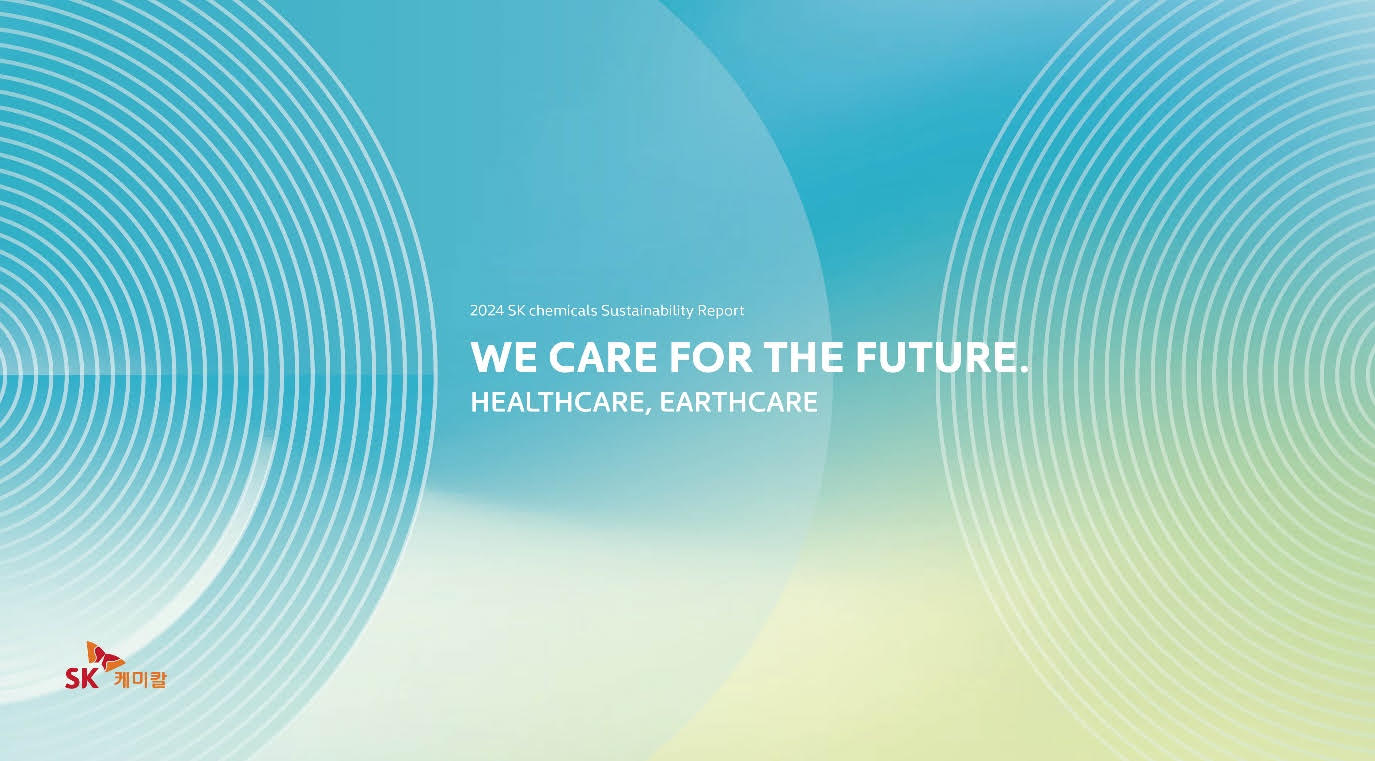- Report Aligned with Global ESG Disclosure Standards Including ISSB, ESRS, and TNFD
- Expanding Recycled and Bio-Based Product Sales to 90% by 2040 and Advancing Toward Net Zero
SK chemicals (President & CEO Ahn Jae-hyun) announced on the 7th that it has published its 2024 Sustainability Report, which outlines the company’s ESG performance over the past year and its future strategies, based on various global ESG disclosure standards.
This year’s report stands out for its enhanced structure and credibility, as it integrates key global disclosure frameworks, including △the S2 standards of the International Sustainability Standards Board (ISSB), △the European Sustainability Reporting Standards (ESRS), and △the guidelines of the Taskforce on Nature-related Financial Disclosures (TNFD).
In accordance with the European Sustainability Reporting Standards (ESRS), SK chemicals conducted a Double Materiality Assessment on five pre-identified key ESG issues—△climate change response, △resource circularity, △human capital, △employee health and safety, and △ethical management. As a result, “climate change response” and “resource circularity” were designated as the company’s top priorities. Detailed strategies for these priority issues are disclosed in a dedicated section (Special Page) of the report, in accordance with the ISSB S2 international disclosure standards.
The Double Materiality Assessment is a process required by global disclosure standards that evaluates both the impact of a company’s business operations on the environment and society (Impact Materiality) and the effect of environmental and social factors on the company’s financial performance (Financial Materiality).
In addition, the report includes an analysis of the natural capital used across business operations and related environmental impacts, based on a biodiversity risk assessment aligned with TNFD guidelines, along with corresponding risk mitigation measures.
The report also outlines SK chemicals’ major ESG achievements in 2024, along with its mid- to long-term strategic goals. Highlights include: △expanding resource circulation partnerships with organizations such as Hyundai Motor Company·Kia Corporation, the Ministry of the Interior and Safety, and local governments; △maintaining ZWTL (Zero Waste to Landfill) Gold certification by achieving a 97% waste recycling rate at the Ulsan plant; and △strengthening greenhouse gas emissions management across all sites while increasing the use of renewable energy.
To accelerate the transition to a circular economy, the company aims to increase the share of products containing recycled and bio-based raw materials to 90% of its chemical product sales by 2040, while also achieving net-zero greenhouse gas emissions (Scope 1 and 2) from its business operations.
Ahn Jae-hyun, President of SK chemicals, stated, “For ESG initiatives to go beyond symbolic declarations and be integrated into core business operations, scientific and systematic data management of ESG metrics and performance is essential.” He added, “We will continuously monitor key tasks and indicators focused on resource circulation and carbon reduction, and work toward achieving our ESG goals through rigorous management.”
Since 2010, the company has published its sustainability report for 15 consecutive years, transparently sharing its ESG vision and performance while continuing to engage with a wide range of stakeholders, including customers, partners, and local communities.
Meanwhile, SK chemicals has received high ratings from both domestic and international ESG assessment agencies, including: △AA rating from MSCI ESG for two consecutive years, △A+ rating from the Korea Institute of Corporate Governance and Sustainability (KCGS) for three consecutive years, △EcoVadis Gold Medal, and △Leadership A ratings in both climate change and water security from CDP.

<Photo Caption: SK chemicals has published its 2024 Sustainability Report, highlighting the company’s ESG activities throughout the year. Cover of the 2024 Sustainability Report>